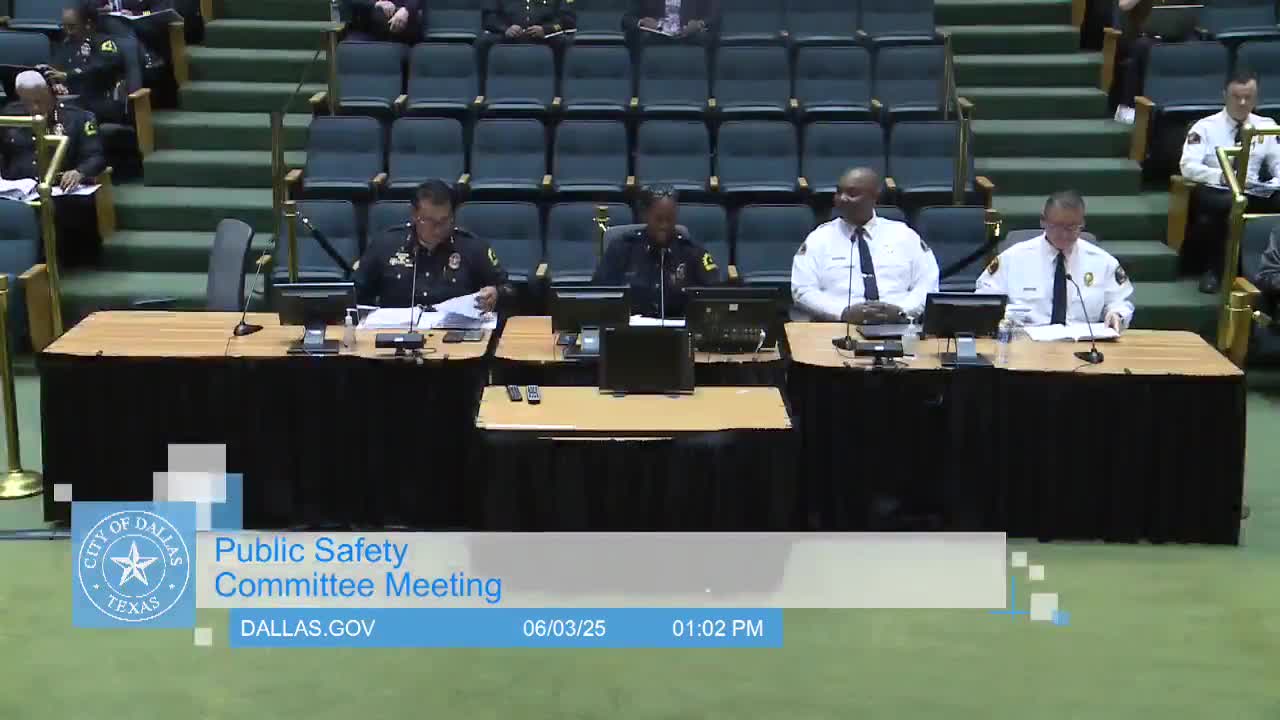Article not found
This article is no longer available. But don't worry—we've gathered other articles that discuss the same topic.
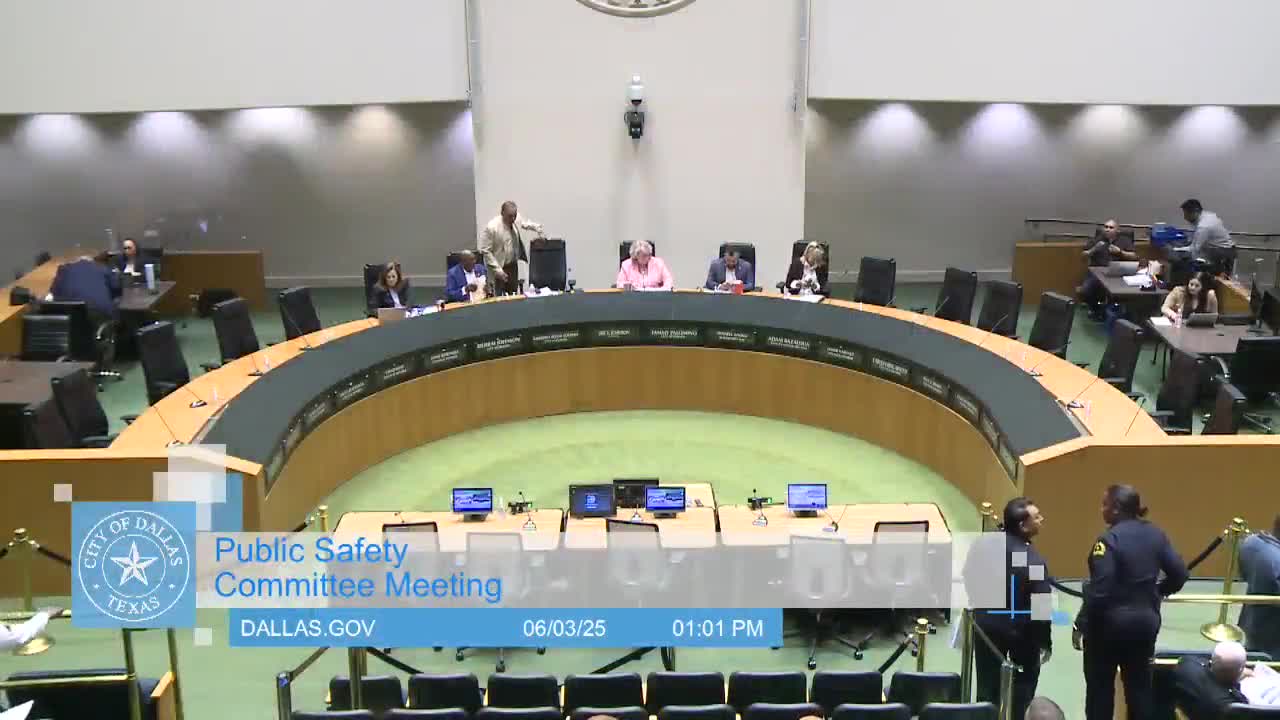
Public Safety Committee actions: minutes approved; pathway briefing forwarded to full council
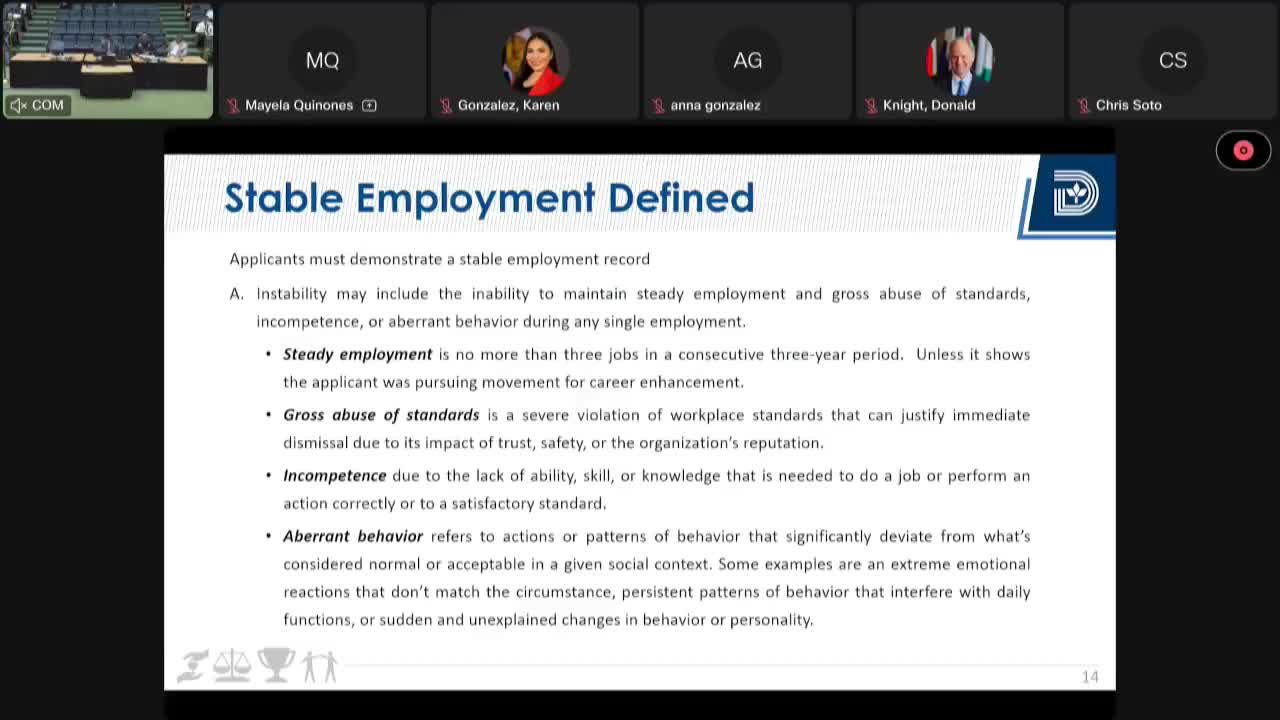
Dallas Animal Services outlines strain of suspected‑cruelty cases, seeks vendor support for housing and care
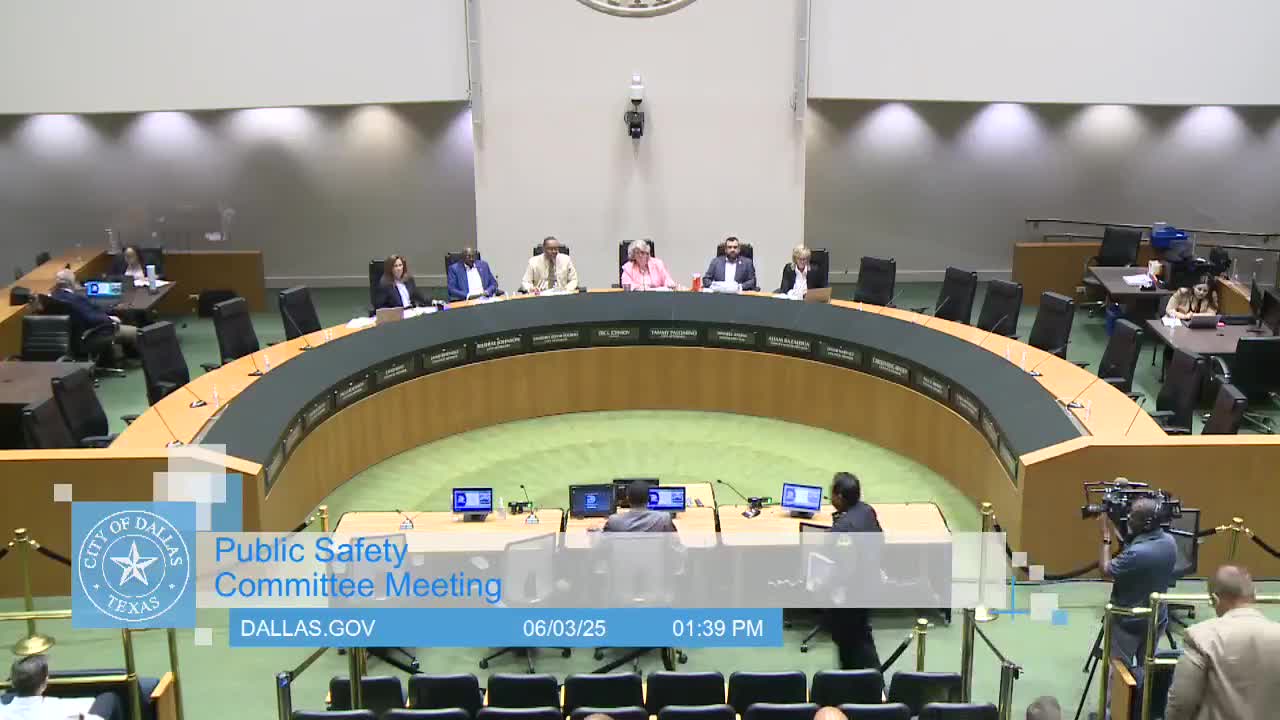
Committee backs one‑year pilot to let high‑school‑educated applicants qualify for Dallas police academy with work experience and college credit pathway
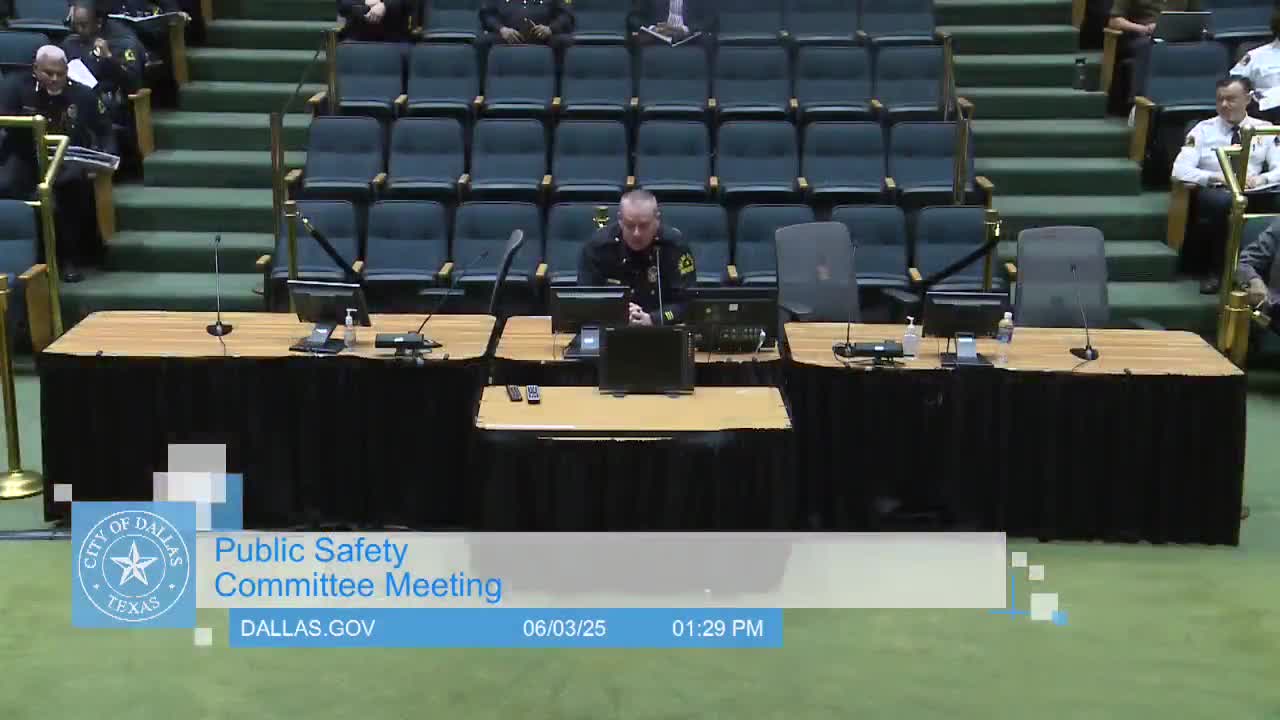
Dallas police report declines in violent crime through May, credit targeted operations
